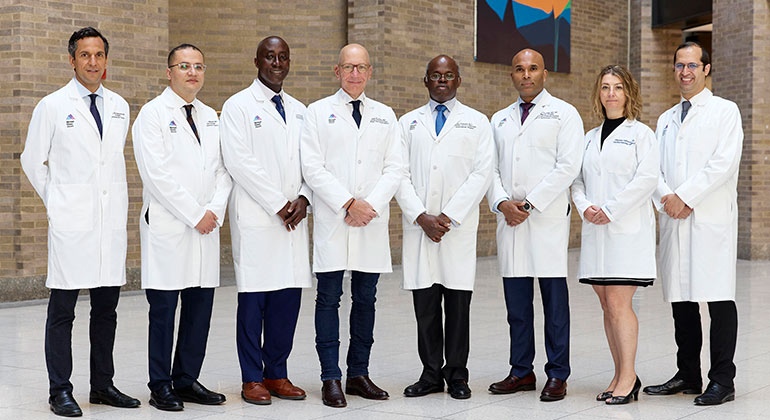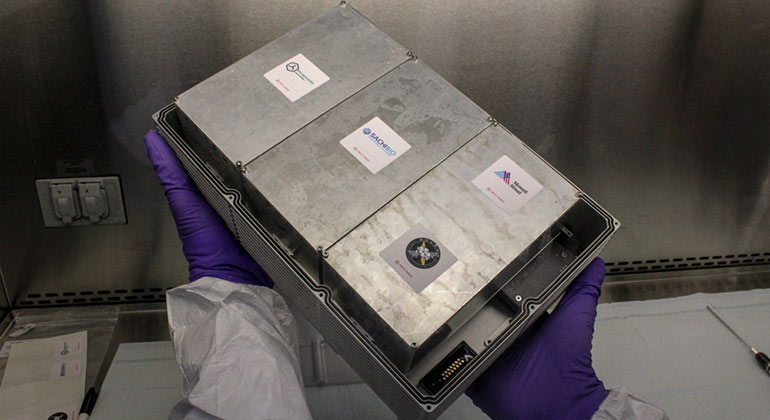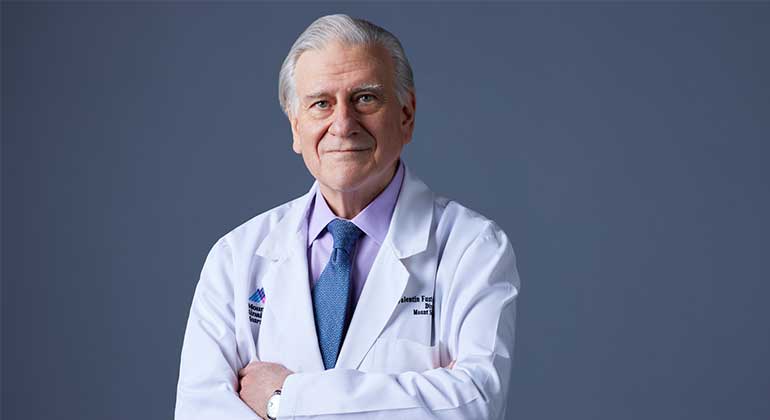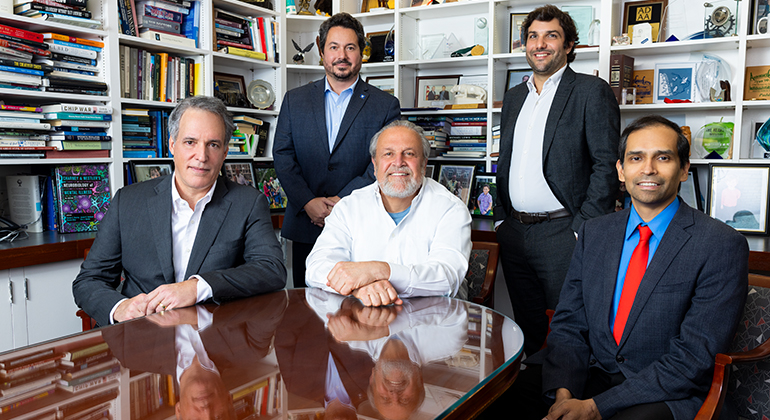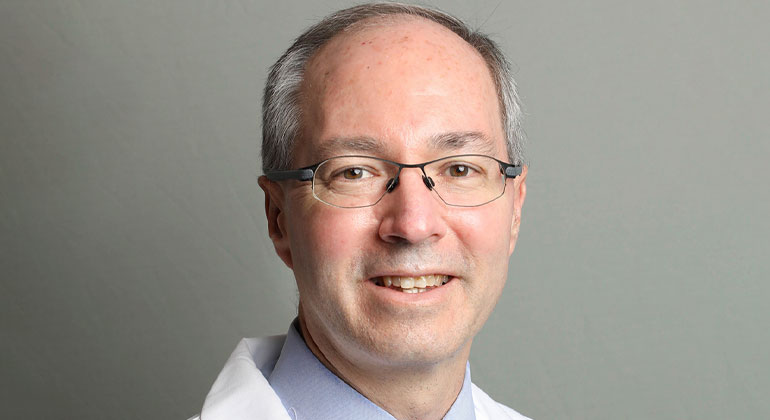Miniature Heart Sensor Keeps Heart Failure Patients Out of the Hospital
Tiny microchip inside heart can monitor vitals of advanced heart failure patients remotely before heart failure symptoms strike.
Cardiologists at The Mount Sinai Hospital have begun implanting tiny, state-of-the-art microchip sensors in patients with advanced heart failure to better monitor symptoms and reduce their chances of returning to the hospital.
The implantable sensor, called the CardioMEMS™ HF System, developed by St. Jude Medical, is a battery-less, dime-sized device placed directly inside the heart to monitor its pulmonary artery. Implanted through a minimally invasive procedure, the sensor detects increases in pulmonary artery pressure, an early sign of worsening heart failure that can be detected before symptoms arise. Among the symptoms of advanced heart failure is shortness of breath, the kind of frightening experience that sends people racing to emergency rooms.
Once implanted, the device transmits daily pressure readings to a patient's medical team, who can then proactively provide real-time, personalized feedback before symptoms worsen. The device has been shown in clinical trials to reduce hospital readmissions for advanced heart failure patients by up to 37 percent.
The new microchip technology is designed for advanced heart failure patients who have been hospitalized within the previous 12 months. The goal of Mount Sinai's heart failure experts is to improve the quality of life in patients with heart failure and reduce the likelihood of hospital readmissions, a growing trend for this high-risk patient population which has become a national priority for the Centers for Medicare and Medicaid Services to reduce readmissions to curb growing healthcare costs.
"This new device will enable heart failure patients to live more comfortably, easing their worries as we closely monitor them for the earliest signs of fluid retention, a major cause of the symptoms of breathlessness and tiredness heart failure patients experience," says Raymond Bietry, MD, Assistant Professor of Cardiology who was the first cardiologist at Mount Sinai to implant the device.
The sensor is the first of its kind and was FDA-approved in 2014. Research studies have shown it has the ability to successfully and safely transmit daily measurements from the patient to their doctor. The implant procedure takes less than an hour to perform, there is typically no overnight stay, and patients can quickly resume their normal life.
"Mount Sinai is all about increasing patient care, comfort, and quality of life with the use of innovative medicine," said Sean Pinney, MD, Director of Heart Failure and Transplantation for The Mount Sinai Hospital and the Mount Sinai Heath System. "This new sensor technology may be a real game-changer for the field of heart failure and allows us to improve patient care, long after they've left the doors of Mount Sinai."
About the Mount Sinai Health System
Mount Sinai Health System is one of the largest academic medical systems in the New York metro area, with 48,000 employees working across eight hospitals, more than 400 outpatient practices, more than 600 research and clinical labs, a school of nursing, and a leading school of medicine and graduate education. Mount Sinai advances health for all people, everywhere, by taking on the most complex health care challenges of our time—discovering and applying new scientific learning and knowledge; developing safer, more effective treatments; educating the next generation of medical leaders and innovators; and supporting local communities by delivering high-quality care to all who need it.
Through the integration of its hospitals, labs, and schools, Mount Sinai offers comprehensive health care solutions from birth through geriatrics, leveraging innovative approaches such as artificial intelligence and informatics while keeping patients’ medical and emotional needs at the center of all treatment. The Health System includes approximately 9,000 primary and specialty care physicians and 11 free-standing joint-venture centers throughout the five boroughs of New York City, Westchester, Long Island, and Florida. Hospitals within the System are consistently ranked by Newsweek’s® “The World’s Best Smart Hospitals, Best in State Hospitals, World Best Hospitals and Best Specialty Hospitals” and by U.S. News & World Report's® “Best Hospitals” and “Best Children’s Hospitals.” The Mount Sinai Hospital is on the U.S. News & World Report® “Best Hospitals” Honor Roll for 2024-2025.
For more information, visit https://www.mountsinai.org or find Mount Sinai on Facebook, Twitter and YouTube.
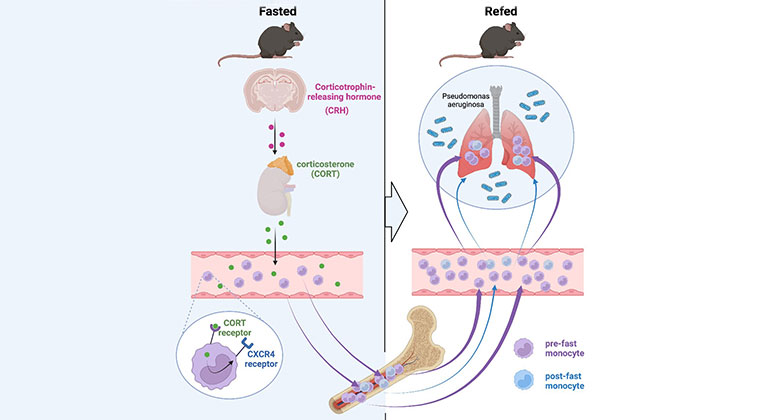
Skipping Breakfast May Compromise the Immune System
Feb 23, 2023 View All Press Releases
Valentin Fuster, MD, PhD, Receives Prestigious Award from City of Barcelona, Spain
Jan 23, 2023 View All Press Releases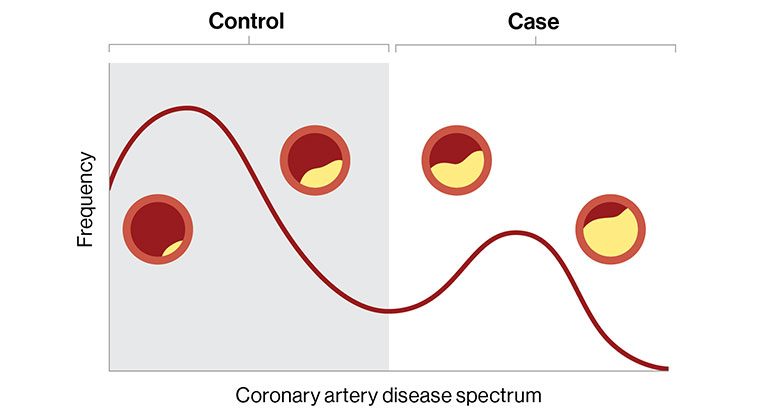
Digital Marker for Coronary Artery Disease Built by Researchers at Mount Sinai
Dec 20, 2022 View All Press Releases
Samin Sharma, MD, Named Director of the Mount Sinai Cardiovascular Clinical Institute
Nov 28, 2022 View All Press Releases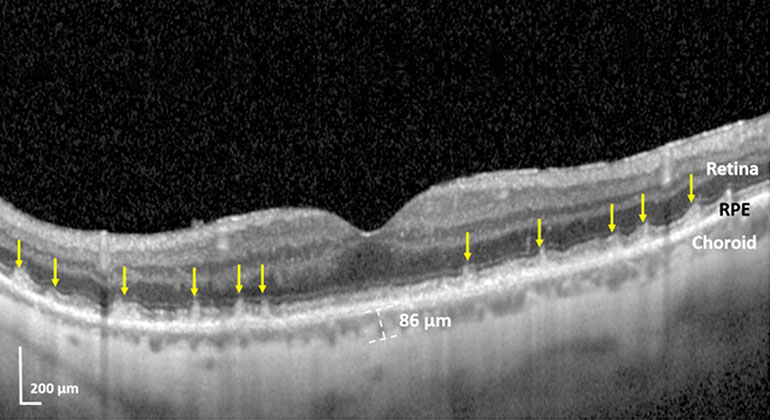
Blinding Eye Disease Strongly Associated With Serious Forms of Cardiovascular Disease
Nov 17, 2022 View All Press Releases